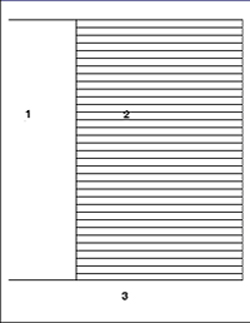Individual styles and approaches mean that note-making can be a very ‘personal’ activity. Sometimes notes made by different people hardly seem to be from the same lecture; this is a good reason to attend regularly and not rely on anyone else to make notes for you unless it’s absolutely necessary.
Whatever method of note-making you adopt, the process will be more effective if you:
Review your notes while the material is still fresh in your mind, and while you can still read your own handwriting. Compare notes with someone to fill any gaps.
Space your notes well, both to ensure they are easier to read and to leave room for additional comments, questions, references etc. at a later date. Be organised: aim to have one set of notes for each topic, rather than everything in the same notebook.
Make a visual summary of linear notes by re-constructing them in diagrammatic form. This is a useful way of producing ‘revision notes’ before an exam.
Include points to follow up. Can you express opinions or raise your own questions? Of course, and in fact the more you do this as you read a book or listen to a lecture the more you will engage with the material. But keep your comments separate [perhaps in square brackets like this], and remember that in an essay your personal opinion is only valid if you have evidence to support it.
Be imaginative with your notes. The following template is for a method called the Cornell system. It splits your page into three sections: Cue Column (1), Note taking Column (2) and Summary (3)

For more details on how to use this system, go to timeatlas.com
Other resources
https://www2.open.ac.uk/students/skillsforstudy/notetaking-techniques.php
Watch: https://www.youtube.com/watch?v=tFtRMePfSDA